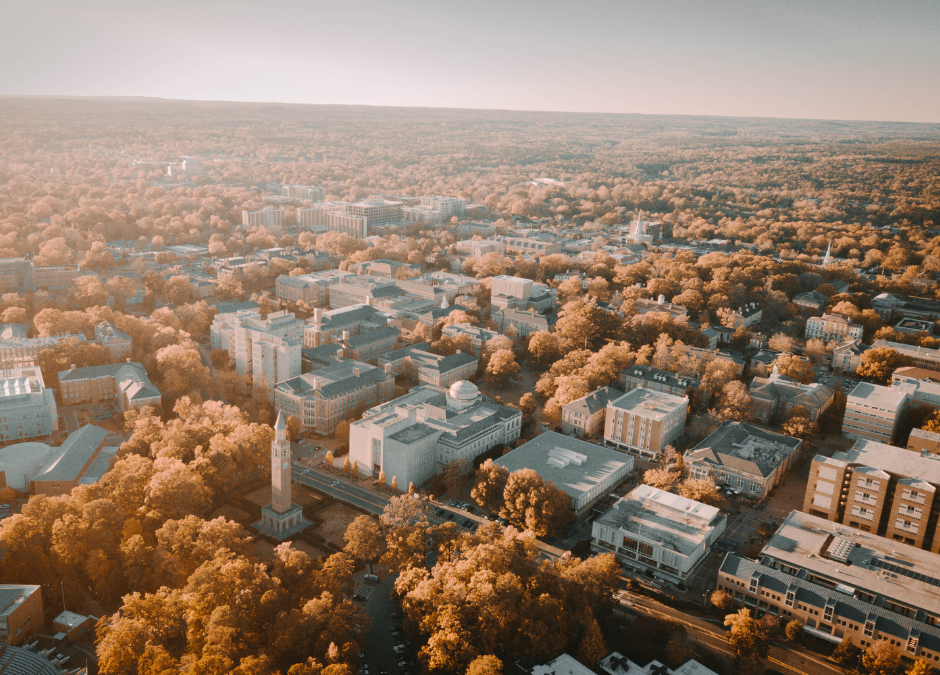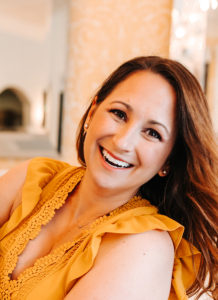After moving back to the U.S. following two years abroad in Spain, followed by two years of teaching Spanish at my alma mater as a temporary lecturer, I decided to combine my loves of Spanish, teaching, and writing to pursue a Ph.D. in Hispanic Literature. My end goal was to land a permanent university teaching job where I could teach, research, and write about the topics I loved most.
At the end of year 4 of 5 of my program, I was ABD – All But Dissertation. I was also newly married to my husband, who had quit his job and moved across the country to be with me while I worked toward finishing my degree. A few months later he was accepted into medical school – across the country.
By working my ass off and also a bit of luck, I managed to win a prestigious fellowship from the university that enabled (and required) me to write full-time for one year to complete my dissertation. I moved to another state with my husband and while he started medical school, I researched, wrote, and edited 8-12 hours a day. I flew back and forth to North Carolina once every four to six weeks to meet with my advisor, use library resources, and carry books back and forth in an extra suitcase.
As I got closer to finishing my dissertation, I spent hours writing personal statements, teaching philosophies, and syllabuses for courses I could potentially (but would probably never) teach, and filled out academic job applications. I had a great resume, except that I had not yet published an article. I had papers and chapters of my dissertation ready to submit to journals and was hopeful that an “accepted with revisions” might suffice by the time I got an interview.
Scrolling through the job postings, I had to make some significant decisions: Where was I willing to apply? Would I move anywhere for a position even though my husband was firmly rooted in his medical school’s city for the next four years? Or, would I only apply to schools near where we already lived? Would I consider applying to schools that had a direct flight to wherever my husband lived? Even if I did, if in four years he was matched to a residency in another city or state, would I leave that job to move with him (again)?
These were excruciating decisions to make after having invested so much time and so much of myself into the Ph.D. program. Spanish language and literature was my first love, and I had finally reached the end of five years of coursework, comprehensive exams, domestic and international research, writing, and editing. But I had also found the love of my life, and gotten married. We had decided to put off starting a family while I finished my degree and he began his medical training. But now that I was finally close to the finish line, I was ready to make choices that fit my whole life, not just the professional aspects of it.
In the end, I applied to every academic job at a university or community college within a few hours of our city, as well as to schools in other cities in Texas, and even some in cities that were a direct Southwest flight from home. I was hopeful that somehow I could have it all, at the same time, and that my academic and professional dreams would coincide with my personal ones.
I did not get a single interview.
This is, unfortunately, common in the academic humanities world. I do have several friends that got amazing tenure-track jobs the first go-round and I am so proud of them and love to follow their work. But it’s not uncommon to have to enter the job market two, three, or even four or more years to find just a one-year visiting position. People often linger at their home institutions as adjunct or temporary faculty, so that they can maybe publish a bit more and stay in the academic ballgame. One of the cruelest things about academic humanities jobs is that once you get a non-academic job, it is very difficult to get an academic job in your field. Generally speaking, it is not possible to “do something else for a while and try again later,” because you will have lost touch with ongoing research and teaching publications, resources, and methodologies in your field.
At the end of my fifth year of doctoral studies, I defended my dissertation and received a unanimous pass from my committee. Since I did not have an academic job lined up, my committee strongly suggested that I not graduate yet, stick around for another year (across the country from my husband, remember), tinker with the dissertation a little more, get a publication or two under my belt, and reapply to jobs the next cycle. They were looking out for my best professional interests and they believed in my potential. I knew they were right. I had also come to the crushing realization that my husband and I had, unfortunately, both chosen careers that were geographically limited – in academia, you go where there is a job, any job; and in medicine, you go to whatever medical school accepts you, and my husband’s two options were in Texas. My program was finished, and his four years were just beginning. I didn’t want to leave behind my new husband and the other things I wanted in life with him.
No, I insisted to my committee, one by one, in meetings and phone calls with each one. I did not want to stick around. I was ready to be done. I wanted to do my revisions and move on. I would find something else. I had no idea what, but something. I knew that what I was doing was academic suicide. It was, quite literally, the death of a dream. But it had become clear to me that at this exact juncture of my life, I could not have it all at the same time, and I chose to leave academia behind to be with my husband while he was at the very beginning of his own professional dream.
Making the choice to look for what is called an “alt-ac” position felt like the unraveling of my identity as a scholar. I was grieving, frustrated, resentful, angry, depressed…you name it, I felt it. Desperate for some encouragement, I scoured the internet to try to find stories of other humanities academics, in particular from world languages and literatures, that had happily and successfully left academia for one reason or another, and I found virtually nothing. There was no one, not even a stranger on the internet, to counsel me on how to do this. I felt even more devastated and alone. I might have gotten high-pass grades in most of my courses, grants, a prestigious fellowship, and a unanimous pass for my doctoral dissertation, but I felt like I had failed, and now I felt isolated in that failure.
While trying to decide what to do next and running out of time to find a job before the new academic year began, I spoke to some colleagues who had worked in independent schools and college prep academies before beginning the Ph.D. They told me a lot of things that intrigued me and some things that made me cringe, but I realized I now had no choice but to cast a wider net. I started searching local K-12 schools to see what jobs were open.
At least I could still teach what I loved, I thought; maybe even AP courses, and maybe still go to conferences and write and research in some way. I landed a job at a prestigious independent school in Houston, and thus began my alt-ac career.
Continued in Part II.



Why am I discovering your blog now? I love it. This piece is perfect and describes an unknown reality. How very brave of you, brava!
Thank you Antonio! I have more to come on the topic. Writing some things I wish I would have been able to read years ago.